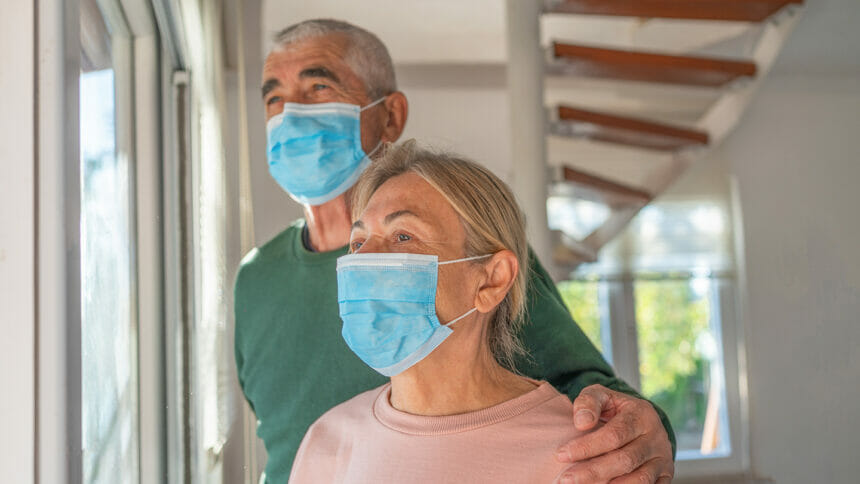
Can an employer be held accountable for a spouse made deathly ill by the case of COVID-19 a loved one brought home from work?
That’s a question to be argued before the California Supreme Court Tuesday, in a case that could set national precedent in so-called “take-home” liability claims. Long-term care professionals who worked in the most vulnerable COVID-19 settings of anyone are watching the case closely.
The court is reviewing issues in Kuciemba, et al. v. Victory Woodworks, Inc. at the request of the federal 9th Circuit Court of Appeals. Federal judges want the state panel to answer whether existing legal doctrine in California prohibits the spouse of an employee who contracts COVID at his workplace and brings the virus home from filing a legal claim against the employer.
The 9th Circuit also wants to know if, under California law, an employer owes a duty to the households of its employees “to exercise ordinary care to prevent the spread of COVID-19.”
The federal court could use the state court’s interpretations in this case to set national standards.
The case and several like it have been followed intently by healthcare providers, including US skilled nursing operators. More than 1.6 million nursing home workers have tested positive for COVID through mid-April, and more than 3,000 died. Many staff members quit — and a few even moved into the nursing homes where they worked — because they were scared to bring the virus home to family members.
Owners are worried
Businesses from coast to coast want the California court to reject the principles on which Corby Kuciemba and her husband, Robert, are suing the furniture maker where he worked. Corby Kuciemba spent a month hospitalized and on a respirator fighting off the COVID infection she got from her husband, who claims he got sick at work.
According to the Kuciembas, Victory Woodworks knowingly transferred workers from an infected construction site to a different jobsite without following the safety procedures required by a state health order. Robert Kuciemba worked in close contact with those employees and soon developed COVID.
But business-oriented attorneys argue that companies cannot know or be responsible for all other potential exposures a worker might have.
“If Petitioners prevail, every employer in the state could be held liable for COVID-19-related injuries suffered by non-employees, so long as those employees can plausibly allege that they contracted the disease from an employee and that the employee was infected at work because of the employer’s negligence,” the US Chamber of Commerce said in a brief that was co-signed by several other national business associations.
Precedence for strategy
The chamber argued the COVID case differs significantly from a 2016 case in which a California court approved “take home” exposure cases involving asbestos fibers carried home on employees’ clothing.
“The differences between ‘take home’ asbestos exposure and COVID-19 outbreaks are both stark and dispositive,” the chamber said. “An employer cannot prevent its facilities from being contaminated with COVID-19 because the virus is ubiquitous, airborne, and extremely contagious. Employers cannot control their employees’ conduct outside of work or prevent them from becoming infected while off duty. And many infected employees are asymptomatic and unaware that they are contagious.”
The American Bar Association noted that California’s top court had previously declined to hear a similar case involving See’s Candies Inc. and the spouse of a worker who died from COVID-19. In that case, a state appeals court ruled that employers could be sued over take-home COVID-19 infections.
But a ruling against the furniture company in this case isn’t necessarily an open and shut win for plaintiffs, attorneys with Harris Beach wrote last year when the federal court asked for a state-level review.
“There remain other potential defenses to claims for alleged COVID-19 ‘take home liability,” they wrote. “Employers’ adherence to safety protocols may disprove negligence allegations. … Even if allowed to proceed, limitations on the scope of defendant’s duty of care, notice, and speculative causation may be effective defense arguments.”
As in most COVID cases involving nursing homes to date, adherence to published guidance will likely be a critical factor in defending suits from employee’s spouses or other relatives affected by a COVID outbreak.




